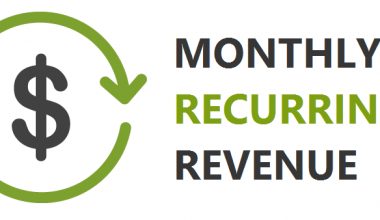The IRS will seize 25% of your lottery winnings before you see a single dollar. Depending on where you live, state and local taxes could be deducted up to an extra 13%. However, given that the top federal tax rate is 37%, you’ll likely owe more when taxes are due. Therefore, consulting a financial expert who can offer assistance with tax and investment strategies would be a wise first step for a lottery winner. See below for information on federal and state taxes on lottery winnings and further details on taxes on lottery winnings and how to calculate them.
Taxes on Lottery Winnings
Undoubtedly, winning the lottery is exhilarating and can significantly benefit the winner’s finances. Still, the winner must be careful not to spend all their winnings too quickly—the IRS taxes lottery winnings like other US income types.
For federal and state taxes, lottery winnings are considered regular taxable income. The whole amount a winner receives must be disclosed on their tax return each year since winnings are taxed in the same way as wages or salaries. However, the IRS takes 24% of the winnings immediately before the winner receives any money. The winner must pay the remaining winnings upon completing their tax return.
How To Calculate Taxes On Lottery Winnings
Net lottery winnings are regarded as regular taxable income by the IRS. You will therefore owe federal income taxes on the sum left over after deducting the cost of your ticket. The IRS only withholds 25% because the amount depends on your tax bracket, which is determined by your winnings and other sources of income. You’ll owe the remaining amount when you submit your taxes in April.
Say you earn $45,000 a year and a $100,000 lottery win, in other words. Your overall ordinary taxable income now totals $145,000 after deducting $25,000 from your lottery winnings for federal taxes. Additionally, your winning lottery ticket increased your marginal tax rate from 22% to 24%.
The $145,000 does not mean you must pay a 24% tax. Only the portion of your income above $86,375 is subject to that rate. That’s $58,625 in this instance. The total amount you would owe in taxes would be $995 (10% of $9,950) plus $3,668.88 (12% of $30,574) plus $10,086.78 (22% of $45,849) and $18,851.76 (24% of $78,549), which comes to $33,602.42. If, for some reason, your company didn’t deduct federal taxes from your pay, as usual, you would still owe $8,602.42 in federal taxes ($33,602.42 – $25,000).
Of course, you would have to pay the highest marginal rate on your win money if you were already in the 37% tax bracket when you won the lottery. But only federal income tax is covered by these provisions—also, possible requests from your state and city.
Federal Lottery Tax Calculator
If you believe Kentucky levies a high tax rate on lottery winnings, prepare yourself. Kentucky is nothing compared to the staggering 25 percent federal lottery tax rate applied to all winnings over $5,000.
Accordingly, on a $20 million ticket, you would pay the state of Kentucky $1.2 million in addition to $5 million for the federal government. You’ll pay Kentucky $60 million and the federal government $250 million on a $1 billion Kentucky Cash Ball prize.
How Much are Taxes On Lottery Winnings
You’ll want to take a few deep breaths and secure and protect your winning ticket if you’re the lucky lottery winner, right? After that, you must evaluate and make taxes for the various tax implications of winning the lottery. For this, you should probably engage with a knowledgeable financial counselor.
This is because the IRS withholds 24% of lottery winners’ winnings. If the winner of this lottery chose to receive the $997.6 million lump sum cash value, they would be liable to federal income tax at the highest rate, which is 37%. The $2.04 billion Powerball jackpot winner’s lottery winnings would be included on their 2022 federal income tax return.
For 2022, single filers who earn more than $539,900 and joint filers who earn more than $647,850 are subject to the top federal income tax bracket (or 37%). The federal income tax brackets have been raised for 2023 to account for inflation.
Most states tax lottery winnings as income for tax reasons, and tax rates vary from state to state. However, considering the record-breaking magnitude of the Powerball lottery jackpot, the billion-dollar jackpot winner’s state taxes might still be a sizable sum.
State Taxes on Lottery Winnings
Even after paying federal taxes on your lottery winnings, you might not be finished. State tax may also be due from you. You should consult a CPA or local taxing authorities to determine how your state taxes lottery winnings, as the lottery rates and regulations, differ from one state to the next. However, state tax rates typically range from 2.9 to 8.8 percent.
Nine states will not have a state income tax as of 2022. They are Wyoming, Alaska, Florida, Nevada, New Hampshire, South Dakota, and Tennessee. Your lottery winnings won’t be taxed in these states.
You should be aware that things become a little more complicated if you purchase your lottery ticket while out of state. Winnings are frequently taxed by the state where the lottery ticket was purchased. Imagine you reside in South Dakota, a state without an income tax. You travel to North Dakota to see your brother and pick up a lottery ticket while you’re there. You might need to submit a state tax return to seek a refund of any money North Dakota withheld from your pay for state income tax.
How Does the State tax Lottery Winnings?
Some states will deduct a portion of your lottery winnings when tax time comes around. Depending on where you live, the size of the piece varies. The most significant bite, up to 13%, is taken by The Big Apple. That’s because the income tax in New York State can be up to 8.82%, and the one in New York City can be up to 3.876%. Yonkers has lower taxes of 1.477%. However, you would only be looking at 8.82% in state taxes at most if you resided practically anyplace else in New York State.
In states with income taxes, Rates can range from roughly 2.9% to 8.82%. However, nine states do not impose a state income tax. As follows:
- Alaska
- Florida
- Nevada
- Hampshire, New
- Dakota, South
- Tennessee
- Texas
- Washington
- Wyoming
Usually, the state where the ticket was purchased (and the reward was paid) will withhold its taxes at its rate if you live in one state and buy a ticket in another. When tax season rolls around, you’ll need to figure out how much you owe to your state.
These examples demonstrate the potential consequences of receiving your winnings in a single payment. However, you can, most of the time, choose to get your income in a series of monthly payments.
Taxes On Lottery Winnings Federal
If you made more than $518,400 in 2020, the maximum tax rate triggered by lottery winnings is 37%. But remember that the federal tax rates are marginal, so not all of your lottery winnings will be subject to the 37% tax rate.
Only the amount over $518,400 is subject to the 37% rate. You will still have to pay taxes on your first $9,875, 12% on the $9,876 to $40,125 share of your income, and so on, even if you win millions.
You can still claim deductions to lower your tax bill and get tax credits to help pay your taxes.
How are Lottery Winnings Taxed Under Federal and State?
For federal and state taxes, lottery winnings are considered regular taxable income. Therefore, your winnings are subject to the same taxation as your salary or wage. Additionally, you must include the total amount you receive on your tax return each year.
Let’s say, for illustration, that you chose to receive your lottery winnings as annuity payments and received $50,000 in 2019. That money must be shown as income on your 2019 tax return. But if you chose to get a lump-sum amount in 2019, the same holds. You must also provide the total sum. A tax calculator is a crucial tool for this.
Note: The IRS automatically withholds 25% of your winnings as tax money before you receive a single dollar. When you submit your return, you must pay the remaining tax bill on the prize money.
Federal and State Tax for Lottery Winnings on Lump Sum and Annuity Payments in the USA
Most financial consultants advise you to take a lump payment since it enables you to earn a higher return if you put it in assets with high potential for growth, like equities. If you win enough money, you might wish to utilize it all to purchase a luxury item like a vehicle, house, or island.
Small jackpot winners, however, can prefer to receive their earnings in yearly or monthly installments, mainly if doing so will result in lower tax liabilities. Or they could choose the consistent flow of money to prevent them from making the typical error of blowing through all or the majority of their earnings. If you accept yearly or monthly payments, you should still consult a financial expert about the best way to invest in that income stream. For instance, you should prioritize your retirement savings account when making contributions. If you don’t already have one, winning the lotto could be the perfect excuse to start a Roth or individual retirement account (IRA).
How can I avoid paying taxes on gambling winnings?
There are winners and losers in gambling. But if they don’t pay their taxes, even winners can lose! The IRS will treat any money you earn from gambling or wagering as taxable income and the fair market value of any items you win. Therefore, it is impossible to escape paying taxes on gaming gains.
Can IRS track gambling winnings?
You must maintain thorough records of your gambling gains and losses and any relevant paperwork, such as tickets, receipts, payment slips, statements, and Form W-2G. If you want to subtract your losses, you must be able to show both your wins and losses.
How does the IRS know if you gamble?
If it opens in a new tab, remember that the IRS will receive a copy of the W-2G form you receive with your winnings. The IRS, therefore, anticipates that you will report those winnings on your tax return. The taxman won’t be pleased with you if you don’t.
Will gambling winnings affect my Social Security?
Taxes on income have an impact on your Social Security retirement payments. For instance, do earnings from gambling or lotteries influence Social Security retirement payments? Yes. The SSA regards gambling and lottery win as unearned income, so they must be reported to the IRS.
Can I write off gambling losses?
Only if you itemize your deductions on Schedule A (Form 1040) and keep track of your winnings and losses are gambling losses eligible for deduction. The total amount of gambling losses deducted cannot exceed the number of gambling winnings declared on your tax return.
What if I lost more than I won gambling taxes?
The total amount of gambling losses you can write off can’t be more than the number of gambling wins you reported on your tax return. As “Other Itemized Deductions,” you can write off your gambling losses up to the amount you won.
Frequently Asked Questions
How is Powerball taxed?
Only eight states do not impose taxes on lottery winnings: California. Florida.
Is it better to take lump sum or annuity lottery?
Winners who opt for a lump-sum payout can avoid long-term tax consequences and take advantage of the opportunity to invest in high-yield financial products like stocks and real estate. A long-term annuity payout option may offer significant tax advantages. Federal taxes immediately reduce Lottery winnings.
What is the first thing you should do if you win the lottery?
- Don’t brag about victory.
- Secure the ticket and make duplicates of it.
- Try to stay anonymous.
- Determine whether you want to create trust.
- Fill out the ticket.
- Lump sum or annuity.
- Be ready to pay taxes.
- Plan your future.
{
“@context”: “https://schema.org”,
“@type”: “FAQPage”,
“mainEntity”: [
{
“@type”: “Question”,
“name”: “How is Powerball taxed?”,
“acceptedAnswer”: {
“@type”: “Answer”,
“text”: “
Only eight states do not impose taxes on lottery winnings: California. Florida.
“
}
}
, {
“@type”: “Question”,
“name”: “Is it better to take lump sum or annuity lottery?”,
“acceptedAnswer”: {
“@type”: “Answer”,
“text”: “
Winners who opt for a lump-sum payout can avoid long-term tax consequences and take advantage of the opportunity to invest in high-yield financial products like stocks and real estate. A long-term annuity payout option may offer significant tax advantages. Federal taxes immediately reduce Lottery winnings.
“
}
}
, {
“@type”: “Question”,
“name”: “What is the first thing you should do if you win the lottery?”,
“acceptedAnswer”: {
“@type”: “Answer”,
“text”: “
- Don’t brag about victory.
- Secure the ticket and make duplicates of it.
- Try to stay anonymous.
- Determine whether you want to create trust.
- Fill out the ticket.
- Lump sum or annuity.
- Be ready to pay taxes.
- Plan your future.
“
}
}
]
}
Related Articles
- Lump-Sum Payments & Investing Definitive Guide (Updated!!!)
- Online Casino Gaming Will Make You Happy as a Clam and Hopefully Win You Some Money
- TICKET MANAGEMENT SYSTEMS: Best Free and Paid Options In 2022






